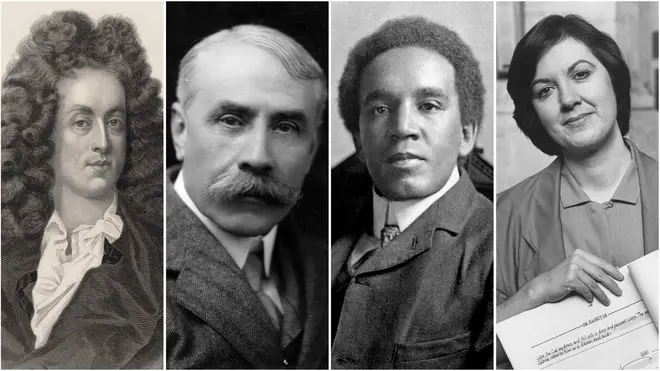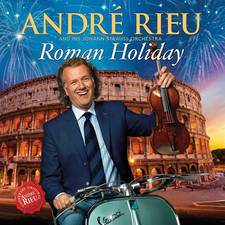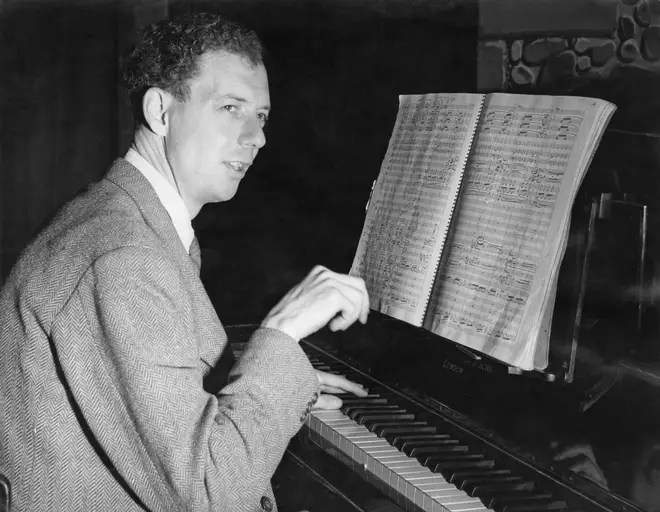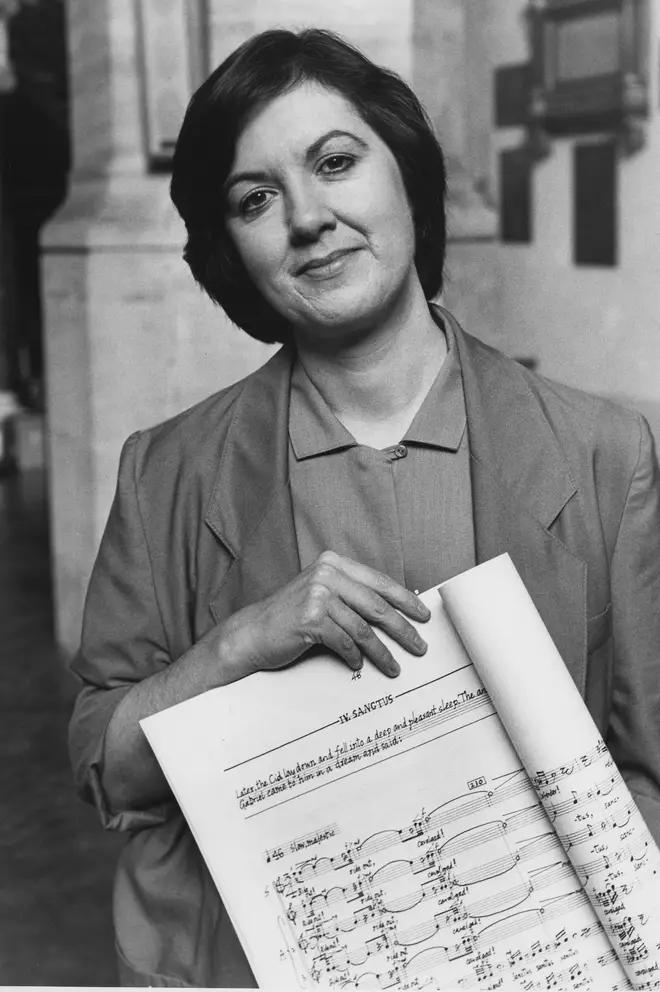10 British composers who shaped the nation’s classical music legacy
21 April 2023, 18:19 | Updated: 3 May 2023, 11:19

From Tallis to Weir – here are some of Britain’s most compelling musical voices from the past few hundred years.
As a new monarch is soon to be crowned, on Classic FM we’re handpicking the finest classical music written by British composers.
From the 16th through to 21st century, here are some of the English, Scottish and Welsh composers who have shaped Britain’s incredible musical legacy.
Read more: Vote for your favourite piece of British classical music in Classic FM’s Great British Classics
-
Thomas Tallis (1505-1585)
Unquestionably one of the finest English composers in history, Tallis is known for the sublime choral settings he wrote – including the hymn, ‘Thou wast, O God’, which inspired Vaughan Williams’ (see below) Fantasia on a Theme by Thomas Tallis, and the stunning 40-part masterpiece, Spem in Alium – which translates as ‘I Have Hope in No Other’ and is written for eight choirs of five separate voices.
Tallis was a composer throughout the reigns of Henry VIII, Edward VI, Mary I and Elizabeth I and, in spite of upheavals in the church created by these monarchs, remained a steadfast composer of sacred music, able to adapt his style and set texts in both English and Latin.

Thomas Tallis ‘If Ye Love Me’, performed by The Queen's Six
-
William Byrd (1543-1623)
Byrd wrote some of the most sublime music known to the human ear. A Renaissance master, his music defined the reign of Queen Elizabeth I, who had a deep love for his music and so turned a blind eye to his devout Roman Catholicism.
From sacred and secular vocal works, to his keyboard and consort music, Byrd’s compositions often reflected the hardship and practising his faith at the time, through anguished harmonies and long, yearning phrases.

Singing William Byrd in a historic priest hole
-
Henry Purcell (1659-1695)
Purcell is considered England’s greatest composer of the Baroque era. Inspired by Italian and French Baroque styles, he shaped a uniquely English version and was dubbed the “Orpheus Britannicus” for his skill in combining powerful counterpoint with expressive, flexible and dramatic lyrical settings.
No other English composers managed to approach his stardom, until Elgar came along two centuries later. The heart-rending aria ‘When I am laid in earth’, from his opera Dido and Aeneas, continues to excite musicians and touch audiences today.

I Can't Breathe- Cellist Performs Dido's Lament for Black Lives Matter Protest
-
Edward Elgar (1857–1934)
Elgar is perhaps the quintessential English composer, many of his works having entered the classical music canon.
Both his enduring Cello Concerto and Violin Concerto remain staples of their instruments’ core concert repertoire, recorded time and time again by the finest musicians out there. And his famous Enigma Variations, two symphonies, and the Pomp and Circumstance Marches all demonstrate his superlative orchestral and instrumental writing.
Read more: 10 reasons why we love Elgar >

Elgar Cello Concerto – Justin Yu and the Joyous String Ensemble
-
Ralph Vaughan Williams (1872–1958)
English composer Ralph Vaughan Williams was one of the most important figures in classical music in the 20th century. Taking inspiration from sources as diverse as Tudor polyphony and English folksong, Vaughan Williams wrote nine symphonies, six operas, a ballet and hymn tunes as well as scores for the stage and screen.
He helped revive British music, and his works like The Lark Ascending and Fantasia on a Theme by Thomas Tallis remain incredibly popular, often topping the Classic FM Hall of Fame, which is the world’s largest survey of classical music tastes.
Read more: Classical music stars on why we love The Lark Ascending so much >

Jennifer Pike performs The Lark Ascending by Vaughan Willams
-
Samuel Coleridge-Taylor (1875-1912)
A contemporary of Vaughan Williams and Holst, Samuel Coleridge-Taylor was an English composer and conductor famous for rich orchestral works and brilliant instrumental writing. Among his best-known works are the Violin Concerto in G minor, The Song of Hiawatha and his arrangement of African American spiritual ‘Deep River’, which was exquisitely reimagined by the Kanneh-Mason family trio (watch below).
In 2021, Coleridge-Taylor made his debut in the Classic FM Hall of Fame, marking a renewed interest in this long-neglected composer’s music.

Traditional: Deep River (Arr. Coleridge-Taylor, Kanneh-Mason)
-
Benjamin Britten (1913-1976)
For English composer, conductor and pianist Britten, the human experience and psyche was an endless source of inspiration. His operas especially, including The Turn of the Screw and Peter Grimes, use powerful music to set stories of the isolated individual increasingly at odds with a hostile society.
And his crowning masterpiece, the War Requiem, is a poignant commemoration by a pacifist composer of the devastating loss of life caused by the Second World War. Dedicated to Britten and his partner Peter Pears’ personal friends who died during the war, the work powerfully sets nine war poems by the English poet Wilfred Owen throughout the traditional Latin Mass for the Dead. It was commissioned for, and premiered at, the 1962 opening of the new Coventry Cathedral.
Benjamin Britten. Picture: Getty -
Judith Weir (1954–)
Scottish composer Judith Weir made history in 2014 when she became the first ever female Master of the Queen’s Music, a role that is music’s equivalent to the Poet Laureate.
Weir is known for her pioneering operas and stage works – including The Vanishing Bridegroom and Blond Eckbert – which often take inspiration from medieval history and traditional Scottish music. She started out as an oboe player, performing with the National Youth Orchestra of Great Britain, and she studied composition with Song of Athene composer, John Tavener, during her schooldays.
Judith Weir, Master of the Queen's Music. Picture: Getty -
Debbie Wiseman (1963–)
Debbie Wiseman OBE, Classic FM’s Composer in Residence, has enjoyed bountiful success in recent years with her album The Glorious Garden with gardening royalty Alan Titchmarsh, which celebrates the great outdoors, and her 2020 composition, Together, written for those at home or self-isolating during lockdown.
Her music for TV and film is also well loved, her score for the Stephen Fry-starring biopic of Oscar Wilde now as special to viewers as the film that inspired it. In 2021, the acclaimed composer and conductor became the most popular living British composer in the Classic FM Hall of Fame for the first time.

Debbie Wiseman: A Lustre to this Day
-
Paul Mealor (1975–)
The year 2011 was a golden time for Welsh composer Paul Mealor, whose motet Ubi Caritas et Amor was performed at the wedding of the Duke and Duchess of Cambridge. Just a few months later, he was commissioned to write the music for ‘Wherever You Are’, whose text was compiled from letters written to British Army soldiers in the Afghanistan War by their partners, for the TV series The Choir: Military Wives.
The song went to Christmas No. 1, and the following year he was voted the “nation’s favourite living composer” in the Classic FM Hall of Fame, charting at No. 5. On top of his unparalleled chart success, Mealor is a prolific classical composer and has written an opera, three symphonies, concertos and chamber music.

Welsh treble Cai Thomas sings Paul Mealor 'Wherever You Are'











































